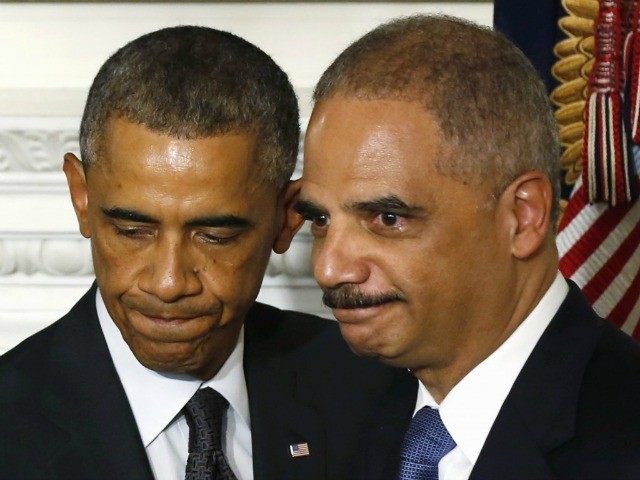Now years after former Attorney General Eric Holder was voted into both criminal and civil contempt of Congress, President Barack Obama continues to hide from the U.S. Congress—and the American people—documents related to the Operation Fast and Furious gun walking scandal. President Obama himself is hiding the documents under what is generally considered a flimsy and imprecise use of presidential executive privilege.
As such, with the latest news that the deadly scandal may be connected to more carnage inside the United States—specifically the Garland, Texas terrorist attack earlier this year—Republican National Committee (RNC) chairman Reince Priebus is calling on the president to be transparent once and for all with regards to Fast and Furious.
“The fact remains, there are still many questions that have gone unanswered regarding the Fast and Furious gun walking scandal,” Priebus said in an email when asked to respond to the latest news about Fast and Furious connections to the Garland terrorist attack. “More facts are needed but should reports confirm illegal firearms fell into the hands of terrorists due to the debauched ATF operation, Americans deserve to know why.”
Fast and Furious was a gun walking operation put together by Bureau of Alcohol, Tobacco, Firearms and Explosives (ATF) officials as part of the larger Project Gunrunner—an initiative started in the George W. Bush administration but expanded under President Obama’s administration, part of an effort designed to let guns get into the hands of criminals then track them back to higher ranking cartel operatives.
It became clear the government wasn’t effectively tracking the guns—more than a thousand of them were lost into the hands of criminals with no surveillance over them—when Border Patrol agent Brian Terry was murdered in Dec. 2010 with one of the guns.
After that, when the new House Republican majority took over in early 2011 and got wind of it all, along with then Senate Judiciary Committee ranking member Sen. Chuck Grassley (R-IA)—the Republicans were still in the minority in the Senate—Congress launched what would become a lengthy investigation into the scandal. Holder’s Department of Justice withheld evidence from Congress and repeatedly refused to cooperate with congressional subpoenas issued to him from then House Committee on Oversight and Government Reform chairman Rep. Darrell Issa (R-CA).
Calls for Holder’s resignation surged as a result—the entire 2012 GOP presidential field called for Holder to resign, as did 130 House GOP members and a variety of GOP U.S. Senators—and then eventually, with Holder still refusing to comply with the subpoena, the House prepared to vote to hold Holder in contempt of Congress. It’s the first time any sitting cabinet member in U.S. history was voted not just into civil contempt of Congress but criminal contempt of Congress. Holder remains there to this day. As Issa’s committee was voting Holder into contempt, President Obama himself made his move to assert executive privilege over the documents Holder was hiding. The full House, soon thereafter, joined Issa’s committee to vote Holder into both criminal and civil contempt of Congress.
Congress sent the criminal contempt resolution to then U.S. Attorney for the District of Columbia Ronald Machen—who worked for Holder—for prosecution. Under orders from Holder’s DOJ, despite technically being required by law to bring forth criminal charges against Holder, Machen ignored it.
The civil contempt resolution allowed Congress to hire legal staff to fight Obama’s assertion of executive privilege in court—legal proceedings that remain ongoing to this day, despite efforts by Holder to dismiss it. It’s expected that eventually Congress will prevail since Obama’s assertion of privilege is so weak.
At this point, it’s still unclear what is in the documents Obama asserted privilege over but the assertion itself appears to be without merit. That’s because there are two types of presidential executive privilege—the presidential communications privilege and the deliberative process privilege—and the facts don’t fit what the president did.
Use of the higher-power presidential communications privilege would require that the president himself or his senior-most advisers were involved in the matter over which he’s asserting the privilege. The president and his staff have repeatedly denied that to be the case, and an assertion of this type of privilege over the documents would mean Holder and Obama lied to the public.
Obama says through lawyers that he is using the less powerful deliberative process privilege, and the reason why Obama’s assertion of that type of privilege is weak at best is because the Supreme Court has typically held that such a privilege assertion is invalidated by even the suspicion of government wrongdoing. Obama, Holder, DOJ, ATF and virtually everyone else involved in this scandal have admitted that such government wrongdoing actually took place in Operation Fast and Furious.

COMMENTS
Please let us know if you're having issues with commenting.